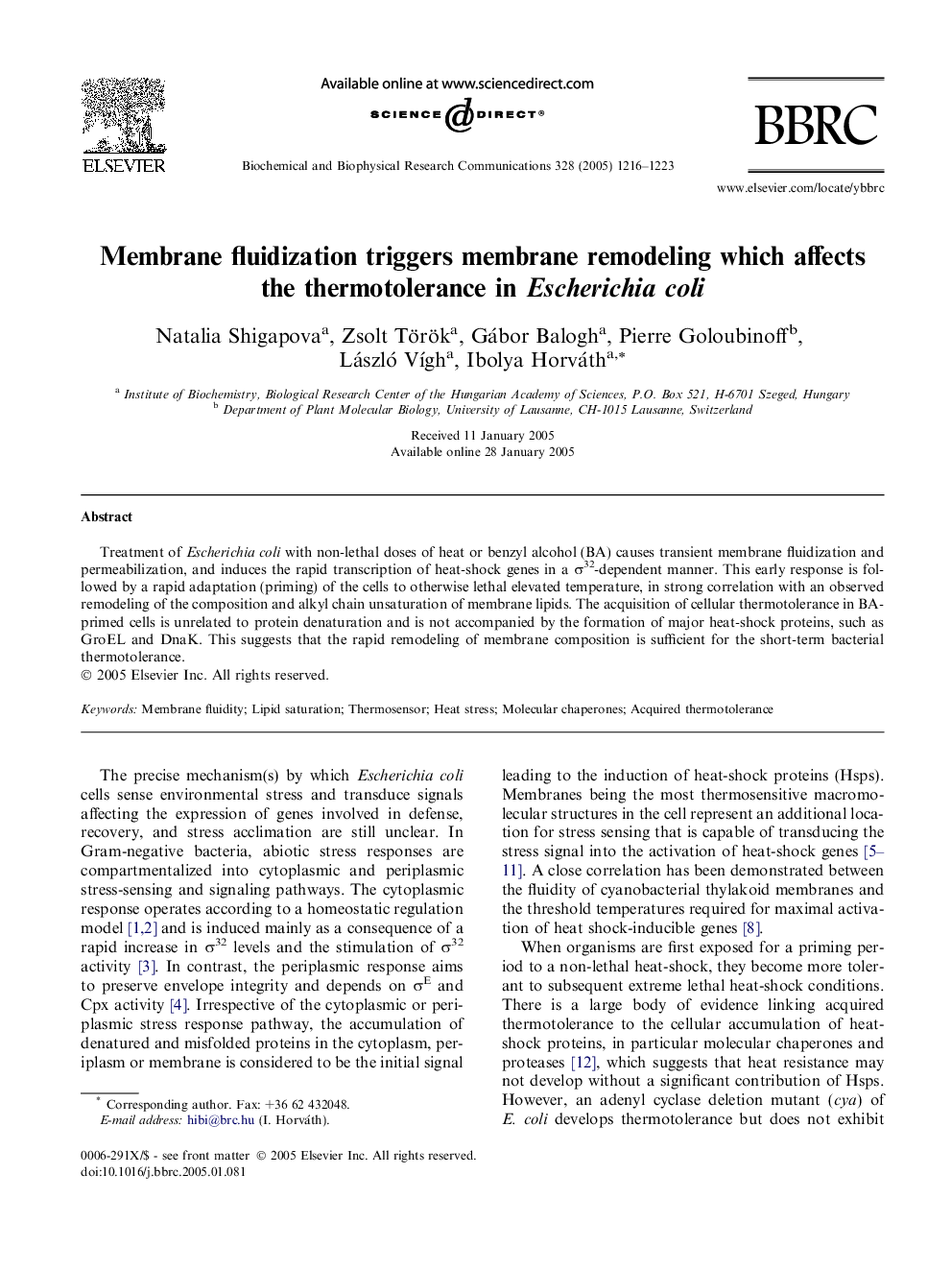| Article ID | Journal | Published Year | Pages | File Type |
|---|---|---|---|---|
| 10770678 | Biochemical and Biophysical Research Communications | 2005 | 8 Pages |
Abstract
Treatment of Escherichia coli with non-lethal doses of heat or benzyl alcohol (BA) causes transient membrane fluidization and permeabilization, and induces the rapid transcription of heat-shock genes in a Ï32-dependent manner. This early response is followed by a rapid adaptation (priming) of the cells to otherwise lethal elevated temperature, in strong correlation with an observed remodeling of the composition and alkyl chain unsaturation of membrane lipids. The acquisition of cellular thermotolerance in BA-primed cells is unrelated to protein denaturation and is not accompanied by the formation of major heat-shock proteins, such as GroEL and DnaK. This suggests that the rapid remodeling of membrane composition is sufficient for the short-term bacterial thermotolerance.
Keywords
Related Topics
Life Sciences
Biochemistry, Genetics and Molecular Biology
Biochemistry
Authors
Natalia Shigapova, Zsolt Török, Gábor Balogh, Pierre Goloubinoff, László VÃgh, Ibolya Horváth,
